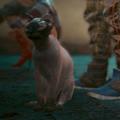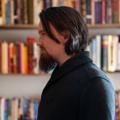Alien plant sentience
4 stars
(em português → sol2070.in/2024/10/livro-semiosis-sue-burke/ )
It's been harder to read science fiction, for some reason. Or rather, it's not been easy to find books I like in the genre. In the last few weeks, I've abandoned three well-recommended ones. So “Semiosis” (2018, 336 pgs.), by Sue Burke, was a find.
The story covers the first century of a small human settlement on the planet Pax, roughly the year 2200, after the complete collapse of civilization and the environment on Earth. The plan is a reboot of humanity, with values that don't point towards compromising the environment and self-destruction. Pax has a biosphere similar to Earth's — already with vegetation and animals — but as it is a billion years older, its members have evolved in an unexpected way. The species with the most sophisticated intelligence and communication is a plant, and humans have to learn to deal with …
(em português → sol2070.in/2024/10/livro-semiosis-sue-burke/ )
It's been harder to read science fiction, for some reason. Or rather, it's not been easy to find books I like in the genre. In the last few weeks, I've abandoned three well-recommended ones. So “Semiosis” (2018, 336 pgs.), by Sue Burke, was a find.
The story covers the first century of a small human settlement on the planet Pax, roughly the year 2200, after the complete collapse of civilization and the environment on Earth. The plan is a reboot of humanity, with values that don't point towards compromising the environment and self-destruction. Pax has a biosphere similar to Earth's — already with vegetation and animals — but as it is a billion years older, its members have evolved in an unexpected way. The species with the most sophisticated intelligence and communication is a plant, and humans have to learn to deal with it, among other factors, such as loss of technology, population decline and environmental hostility.
It's a gripping, conflict-ridden story that also reflects fundamental questions about ethics, society and non-human sentience. It has small flaws, which can even be seen as qualities. The depth of the scientific dive into world creation is ideal — any more than that and it would be too hard sci-fi for me. However, people with a more rigorous scientific bent may be disappointed by some of the details, since the focus is on human and non-human relationships.
It's the first volume of a duology that will be completed with “Interference” (2019), already in my reading queue.












